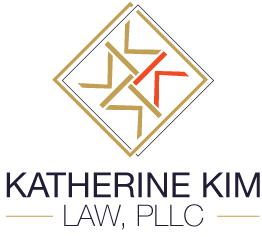Be Prepared! Necessary Legal Steps to Take Before Starting Your Own Business
By: Christian Kramer
Starting a new business is exciting, but forgetting to take care of the important legal requirements can spell disaster for you and your new venture.
So you've decided to start your own business—congratulations! You are on your way to a fulfilling, exciting—and hopefully—profitable new career. However, starting a business is not always as straightforward as it seems. There are important steps that every new business owner must make before getting off the ground. Forgetting one of these steps could hit you with governmental compliance fines, lost capital, or even bankruptcy! To ensure you cover all of your bases when forming a business, read the following steps and consult with a qualified business attorney.
Designate your business structure.
The law requires all businesses to choose to operate under a specific a business structure. Often, businesses will indicate their structure in their title: terms like "L.L.C", "P.L.L.C", or "L.P." all designate different types of businesses. Your business structure affects how your business pays taxes, gains profit, and generally operates. Therefore, choosing the right structure is a very important decision.
There are five basic business structures, each with its own unique characteristics. Choosing the right structure for your business depends on various factors. When deciding which structure is right for you, it can be helpful to ask yourself:
· Who do I want to "own" my business?
· Do I want to be financially liable for my business expenses?
· Does my business have co-founders?
· Do I need to protect my personal assets?
· What are my long-term business goals?
Taking these questions to a qualified business attorney can be a great way to start the conversation of which structure is best for you. Attorneys like Katherine Kim at Katherine Kim Law, PLLC can come up with creative designation solutions that will start your business off on the right foot.
Make sure your business is "permitted."
Business permits and licenses are rarely discussed when people talk about starting a business. However, whether you plan to operate your business out of your home or in public, it is essential to know what permits are required within your city or county. Depending on where you’re located and the industry you are working in, you will need different business licenses to operate. Additionally, the nature of your business might require you to seek separate permits from municipal entities like the Fire or Health Department.
The licenses and permits your business needs, and the processes for getting them depend on your type of business and the industry you are in. As such, it is best to seek professional help to make sure you are compliant with county and state regulations. Online blog posts or websites giving out free instructions might not cover every law regulating your unique business situation. To ensure that you cannot be shut down for non-compliance, call Katherine Kim today for a thorough explanation of the regulations concerning your industry.
Protect your ideas.
On its face, the phrase "intellectual property" can seem strange and complicated. However, in reality, intellectual property is another way of saying “ideas.” When you have an idea for a new invention or slogan or song, that idea is your intellectual property. Having a unique idea can be a way of distinguishing yourself and your business to potential customers. But if your idea is not protected, competitors in your industry could steal it from you and profit from your creativity. Luckily, there are specific processes available that you can use to protect your ideas, or, intellectual property.
You have likely heard of patents, trademarks, and copyrights before. Even if you're not sure what they are, you've likely seen or heard of a product that uses "patented technology," or seen the symbol for copyright next to an image. Patents, trademarks, and copyrights are all used to protect intellectual property from being copied and used by anyone besides the owner(s) of the property. As a general rule of thumb, patents are used for inventions; trademarks are used for names, words or slogans; and copyrights are used for artistic expressions, such as graphic images or songs.
When you own your own business, you will be coming up with unique ideas that will give your business identity and a competitive edge in your industry. Whatever you do, you will want to make sure that those ideas stay protected. However, navigating the processes for obtaining a patent, trademark, or copyright can be overwhelming. It is important to seek the advice of an intellectual property attorney to know the best way to apply for these protections.
Get yourself a lawyer!
This blog only outlines a few of the important, general legal considerations you should have when starting your own business. There are countless other things that you must anticipate and plan for—some of which you won’t know until it is too late. Seeking counsel from a qualified attorney is a major step when starting a new business. You might feel that talking to an attorney early on is too expensive, but receiving guidance and advice now can save you in compliance and legal fees down the road.
Katherine Kim Law PLLC has experience in all aspects of starting a new business. As an attorney who serves real people with real problems, Katherine Kim is able to give you affordable and complete legal guidance on the best way to set up your new business for success. Call today for a free consultation about your business at (214) 814-5123.


